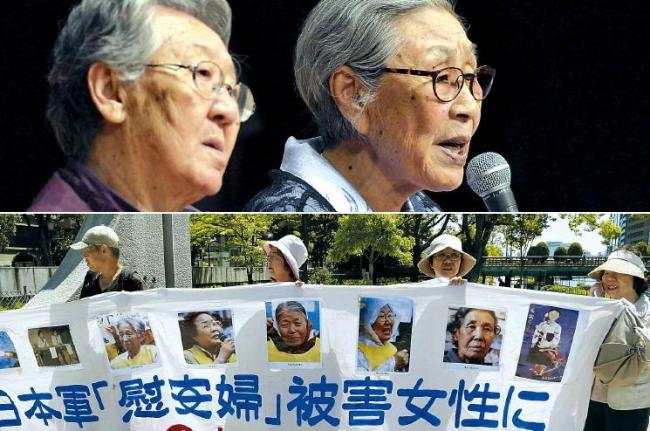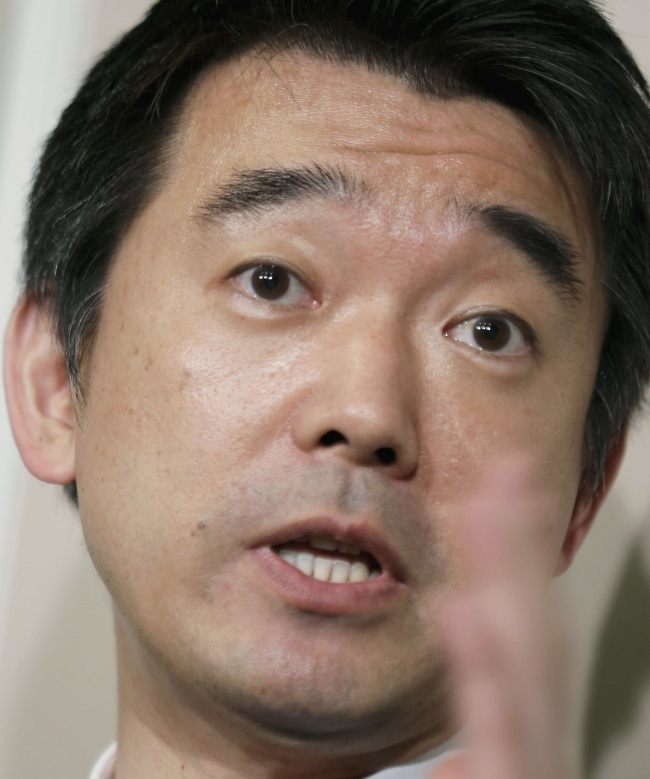[Newsmaker] Osaka mayor hurts Japan’s image, his future
By Korea HeraldPublished : May 26, 2013 - 20:53

Osaka Mayor Toru Hashimoto, once seen as the potential prime minister of Japan, has become a lightning rod for international criticism with his remorseless remarks about the victims of wartime sexual slavery.
The 43-year-old, who co-chairs the nationalist Japan Restoration Party, earlier said frontline military brothels during World War II were necessary to give troops relief and maintain their discipline. He also suggested U.S. troops in Okinawa use adult establishments to help curb sex crimes.
These remarks have raised the ire of South Korea and China, the two major victims of Japan’s wartime atrocities. The U.S. State Department called Hashimoto’s remarks “outrageous and offensive.”
The 43-year-old, who co-chairs the nationalist Japan Restoration Party, earlier said frontline military brothels during World War II were necessary to give troops relief and maintain their discipline. He also suggested U.S. troops in Okinawa use adult establishments to help curb sex crimes.
These remarks have raised the ire of South Korea and China, the two major victims of Japan’s wartime atrocities. The U.S. State Department called Hashimoto’s remarks “outrageous and offensive.”

Japanese pundits and civil society also protested his remarks.
“The issue of comfort women (a euphemism used to refer to the victims) has become an international one. I can’t understand why he has been churning out such remarks,” former Japanese Prime Minister Tomiichi Murayama said during a NHK interview Saturday, urging him to apologize.
In 1995, Murayama issued an official government statement apologizing for Japan’s wartime aggression.
Apparently recognizing the possible political ramifications on the forthcoming upper-house elections slated for July, Hashimoto has begun efforts to contain the criticism. On Saturday, he apologized to U.S. citizens, saying he wanted to retract his remarks concerning U.S. troops.
But the apology appears to have come too late. Public support for his party has decreased to around 7 percent, compared with about 16 percent earlier this year, with critics calling for his resignation.
This rings alarm bells for Prime Minister Shinzo Abe, who himself has been at the center of controversy over his remarks that apparently showed his unwillingness to fully atone for Japan’s wartime aggression.
Abe’s Liberal Democratic Party, with support from Hashimoto’s party, wants to revise Article 96 of the Japanese constitution to reduce the number of parliamentary votes required for a constitutional revision from a two-thirds majority to a simple majority. Many analysts view the envisioned amendment as a prelude to revising the constitution’s war-renouncing Article 9.
By Song Sang-ho (sshluck@heraldcorp.com)
-
Articles by Korea Herald








![[KH Explains] How should Korea adjust its trade defenses against Chinese EVs?](http://res.heraldm.com/phpwas/restmb_idxmake.php?idx=644&simg=/content/image/2024/04/15/20240415050562_0.jpg&u=20240415144419)











